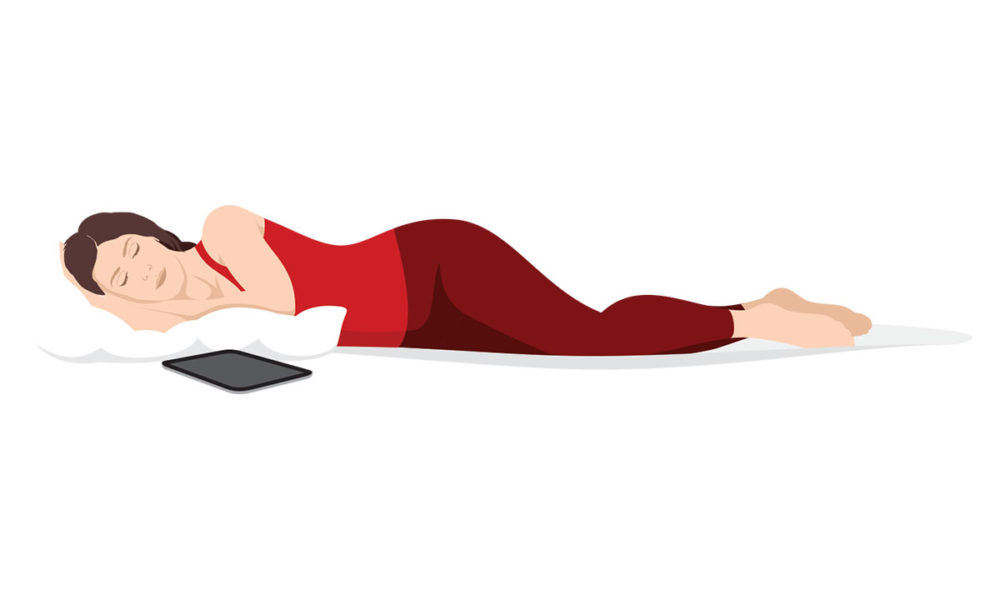Decrease the negative effects of using your electronic devices late at night in order to get better sleep.
Sleep is hugely important to health—more sleep leads to clearer skin, brighter eyes, and better digestion. Additionally, you burn calories while you sleep if you’re in a muscle-building phase. Sleep also promotes higher functioning cognitive abilities.
Have you ever been sleep deprived for several days? Your cognitive capabilities start to slip. Unfortunately, sleeping in on the weekends does not actually make up for lost sleep during the week.
How Much Do You Need?
Sleep does not work like a bank—it’s more like a scale. According to the National Sleep Foundation, adults need seven to nine hours of sleep per night. Teenagers need slightly more, about eight to 10 hours with studies showing that the optimal amount of sleep for teens is 9-1/4 hours. Sleeping less than those amounts means that you are sleep deprived.
Arianna Huffington’s book, “The Sleep Revolution: Transforming Your Life, One Night at a Time” is about how we are “in the midst of a sleep deprivation crisis.” The emphasis on doing more and doing it faster is driving us to cut corners when it comes to our health.
New Device Settings
There are several ways that we are currently foiling our sleep patterns.
Your bed should be for sleeping—do not do work, especially on your computer, in bed. I’m guilty of it, too! Doing work in bed sends the message to the brain that when you get into bed, it is time to work and not time to relax and go to sleep.
Additionally, most computers and phones use a blue light, which can mess up our circadian rhythms and keep us up at night when we should be going into a rest mode.
The latest update to the iPhone has a Night Shift, which eliminates the blue light based on a set schedule that works for you. You can set it to turn on automatically each day. I definitely think it makes an impact.
You can also download f.lux, which is a computer plugin and works the same way for your desktop; it mimics the sun based on where you are geographically.
Schedule It
Try to stop using digital products several hours before you want to go to sleep. This gives the mind time to wind down and prepare for sleep.
One tip is to make sleep an appointment, like a meeting or going to a workout class. Schedule time for sleep. It’s important.
Going to bed routinely at generally the same time is critical if you’re using a natural sleep aide, like melatonin. It will only work if you allow yourself to go to sleep. Turn off the phone. Darken your room and truly prepare for rest.
Getting enough sleep is one of the biggest investments that you can make in yourself, giving your body and mind the time to reset and get ready to do it all over again the next day.


